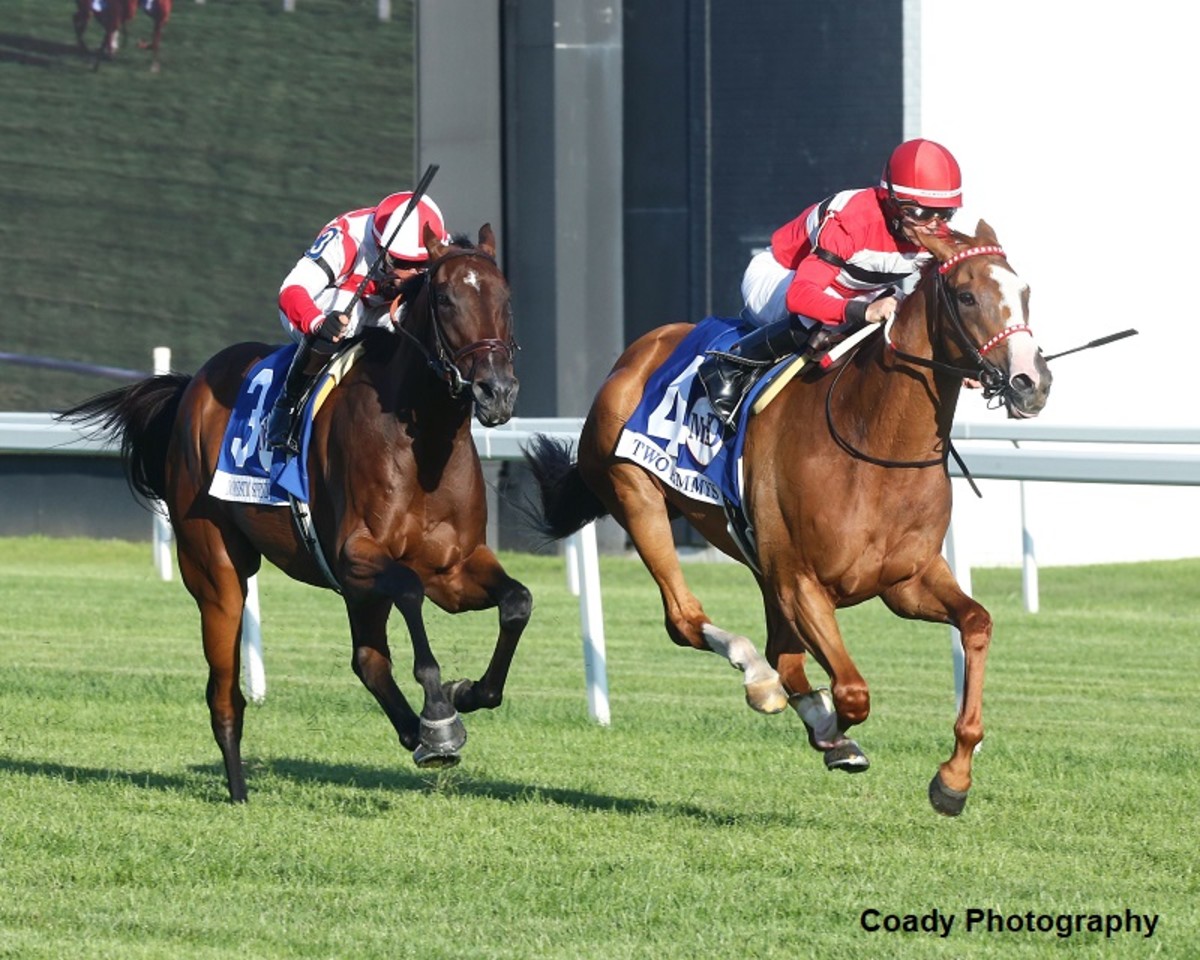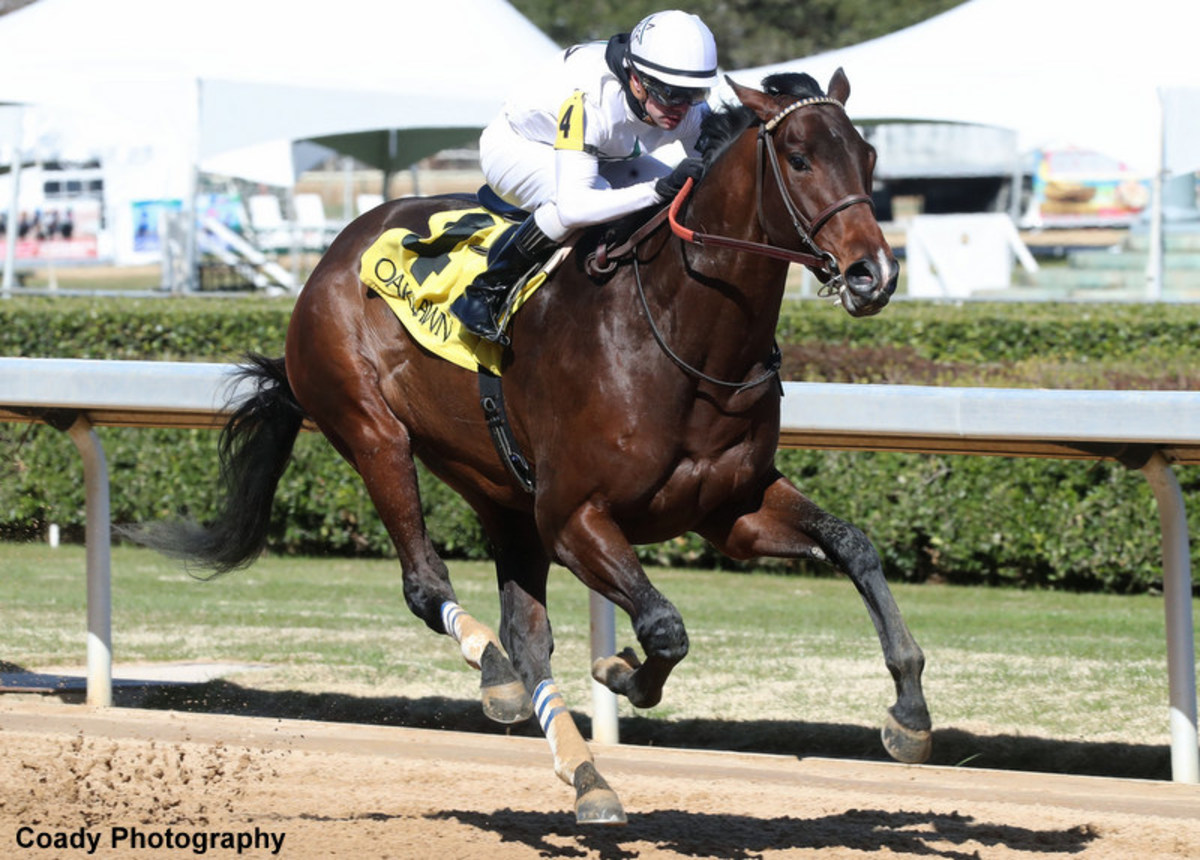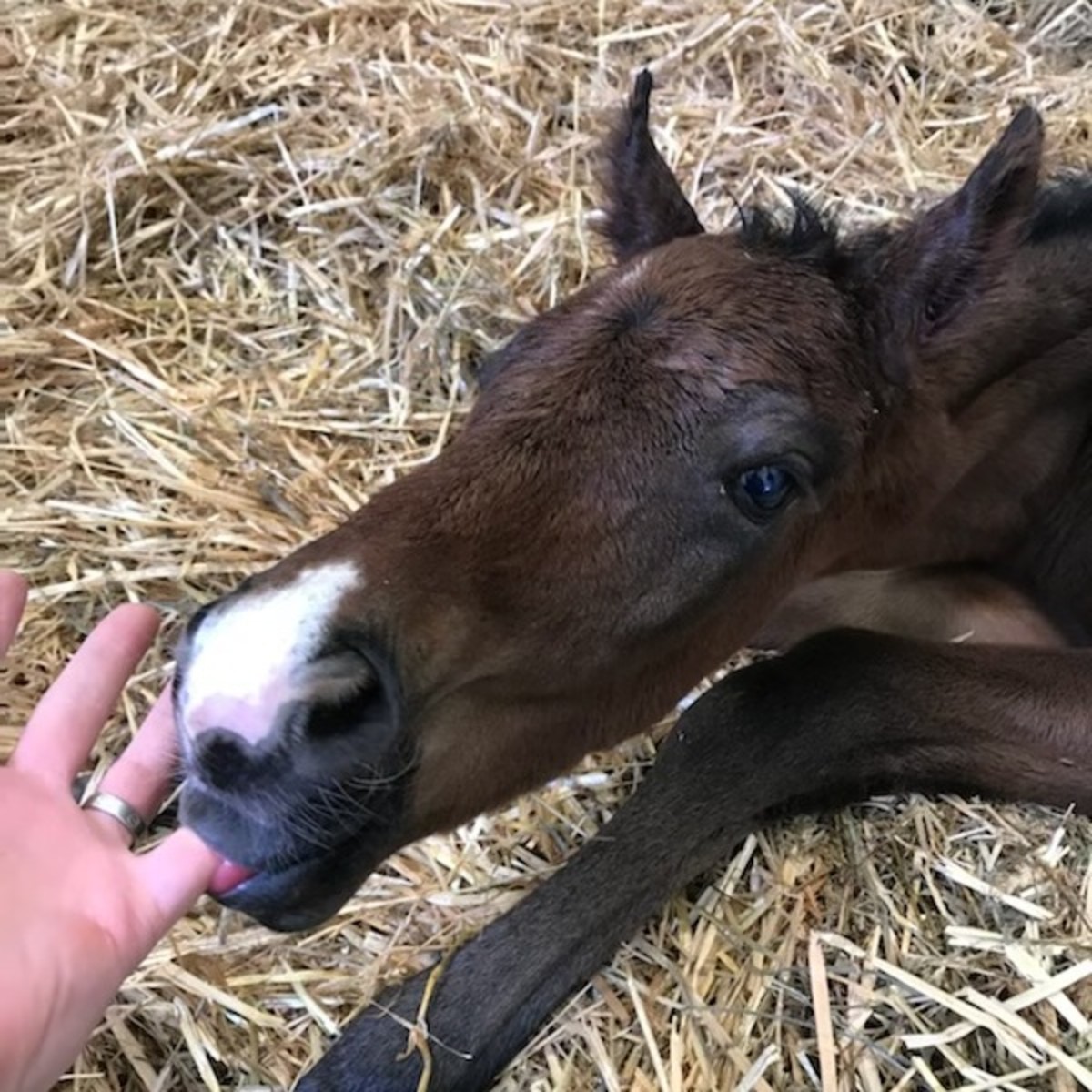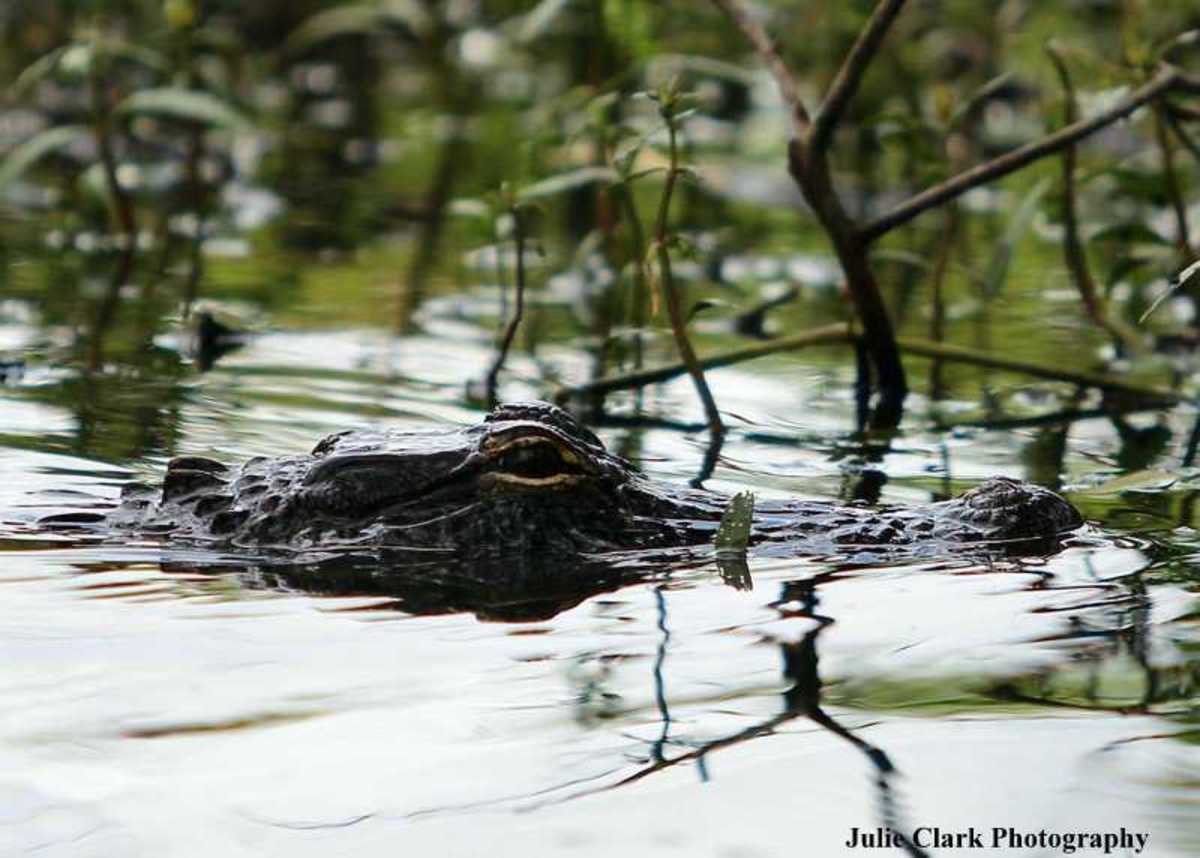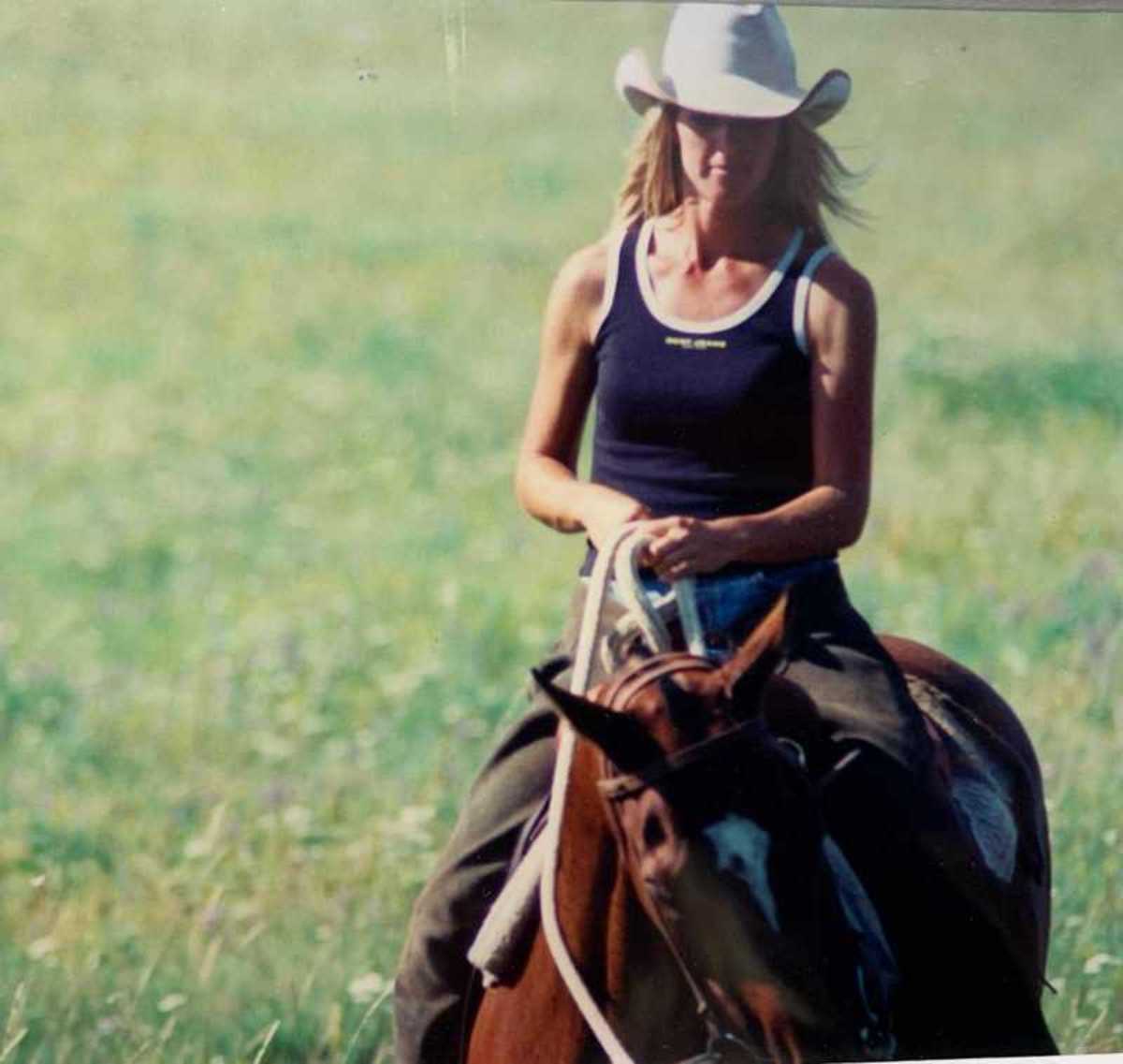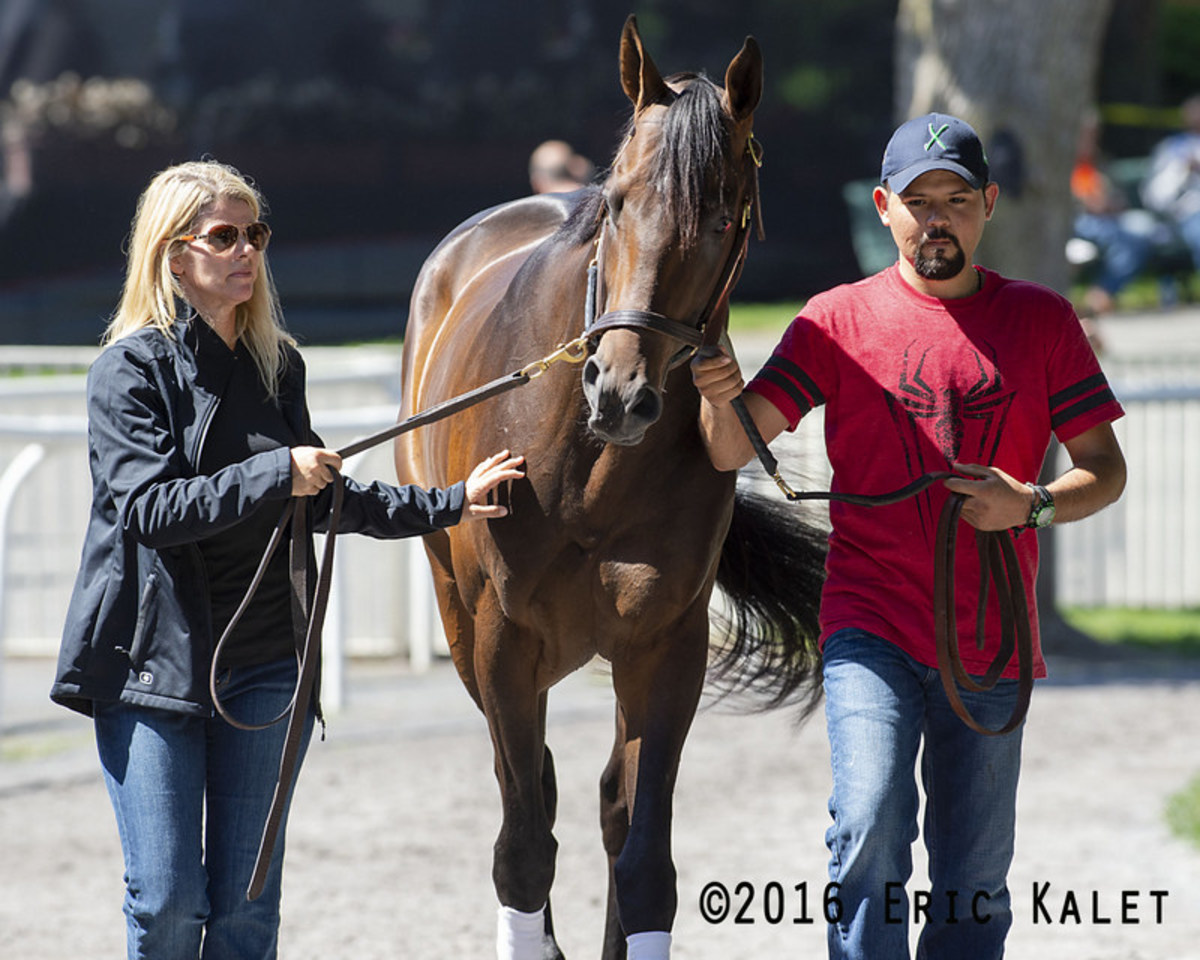“The Arkansas Derby winner, and his name is Cyberknife!”
Racing through his home in Del Ray Beach, Fla., owner Al Gold burst into the room just in time to watch his colt cross the wire in front and celebrate with racing manager Joe Hardoon.
Gold had been planning to watch the race outside on his iPad, a superstitious move that had worked with his most recent winner, but the iPad froze shortly after the field broke from the gate. He rushed into the house, but couldn't find the remote for the closest television. Gold then made his way to the room in which Hardoon was watching the race, managing to catch the final strides of his first Grade 1 victory.
It was a happy end to a weekend that had begun on the completely opposite end of the spectrum. Gold had planned to take his family and Hardoon to Arkansas for the race, but their plane lost cabin pressure shortly after takeoff and was forced to perform an emergency landing.
The loss of cabin pressure is a serious problem; it can cause hypoxia, leaving occupants without enough oxygen to maintain consciousness.
“I always hated to fly,” Gold said. “We were up in the air for about 15 minutes, and I started sweating and my ears were hurting, and a few minutes later the wheels went down.
“We were happy to be alive.”
That sentiment extends to Cyberknife's name, as well. Gold, a 66-year-old retired construction manager from New Jersey, was diagnosed with prostate cancer in 2020. The CyberKnife System, a non-invasive robotic treatment, has kept him in remission.
The CyberKnife robot moves and bends around the patient to deliver radiation doses from potentially thousands of unique beam angles, significantly expanding the possible positions to concentrate radiation to the tumor while minimizing dose to surrounding healthy tissue.
“A lot of people don't know about it, and when you hear 'prostate cancer' it's easy to get afraid right away,” Gold said. “The CyberKnife is just five sessions at 18 minutes each, and it was effective; I've had no signs of anything since then.
“Usually, I like to give my horses weird names, but this was the one serious name.”
Cyberknife, the colt, earned the weighty name by virtue of his early talent. Gold heard good things about his potential during early training, and decided he'd send the colt to Brad Cox.
“I wanted to give him to the best trainer out there, and Brad has won two Eclipse Awards,” Gold said. “He takes his time, he's very dedicated, very thorough, and just a very-detail oriented trainer.”
Gold appreciates those details. He said he had a very bad experience with a bloodstock agent years ago, which wound up going to court. Still, he refused to give up on the sport he'd grown to love.
Cyberknife was one of the first horses selected by 24-year-old Joe Hardoon, son of Jonathan Hardoon of the Ragozin sheets. Gold and the Hardoon family had become friends after spending time together at Saratoga, and the younger Hardoon is also Gold's racing manager.
Out of the multiple stakes-winning Flower Alley mare Awesome Flower, Cyberknife was a $400,000 purchase at the Fasig-Tipton Kentucky yearling sale. While talented, the colt was somewhat immature mentally and has not been straightforward in his training.
Cyberknife crossed the wire first in his debut at Churchill Downs on Sept. 25, but was disqualified for interference in the stretch. In his second start, the colt ran erratically in the final eighth to miss the win by a half-length. Cyberknife put it all together on the day after Christmas at the Fair Grounds, finally breaking his maiden in his third career start.
Then came a backward step in the G3 Lecomte Stakes, in which Cyberknife could do no better than sixth.
“He just needs to race and get some miles underneath him in the afternoons,” Cox told Fair Grounds publicity. “I think the talent is there, but he's got to take a step forward mentally, and I think he will… I think he's going to be a player in the 3-year-old division.”
Cox dropped the colt back into allowance company, and he was much more professional to post a three-length victory.
It was time for the biggest test of Cyberknife's career, the Grade 1 Arkansas Derby. True to form, Cyberknife was playful in the post parade and unseated jockey Florent Geroux. Geroux hopped back aboard on his own, and carried on to win the race by 2 ¾ lengths. He still raced somewhat erratically in the stretch, but Cyberknife was well clear of the rest of the talented field.
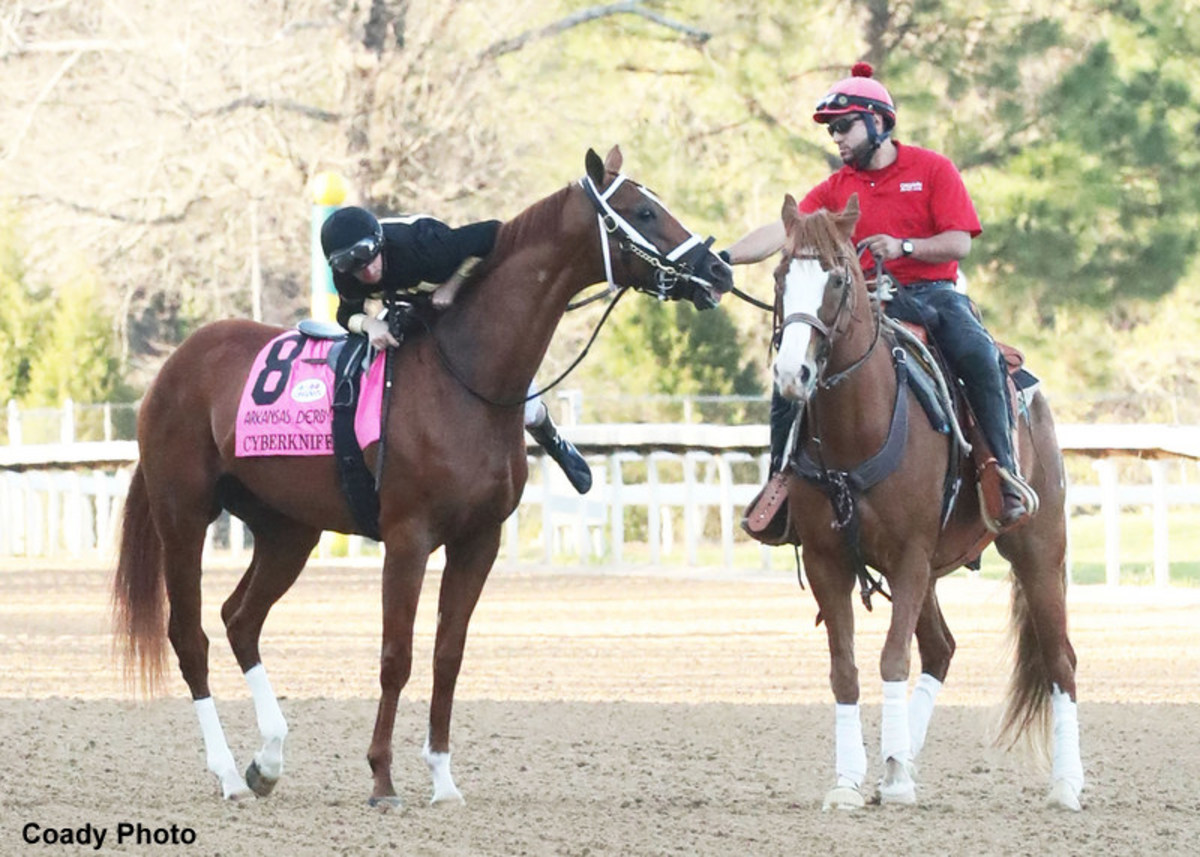
“If you watch his race replays, they tell you more about him than anything in regards to his antics down the lane,” Cox said the morning after the win. “Obviously in the post parade yesterday, he did get Flo off and he's a handful, he really is. He's not bad. He's just full of energy.”
Gold echoed his trainer's thoughts on the talented, cheeky colt.
“He's been green every race of his career, but he's better than he was,” Gold said. “He's better every week.”
Heading toward the first Saturday in May, Gold said it would be just his second time attending the Kentucky Derby. Last time the horse he owned won the first race on the card, so Gold will be hoping that luck holds true in his second trip to Louisville, Ky.
“I started betting on the races 50 years ago, and I've had a few other good ones along the way, a Grade 2 and a Grade 3 winner, but something always happened that they didn't make it any further,” Gold said. “This is the one; he's stuck around and stayed healthy, and we're excited about the Derby.”
The post Breeders’ Cup Presents Connections: Gold’s First Grade 1 A Study In Patience, Perseverance appeared first on Horse Racing News | Paulick Report.
